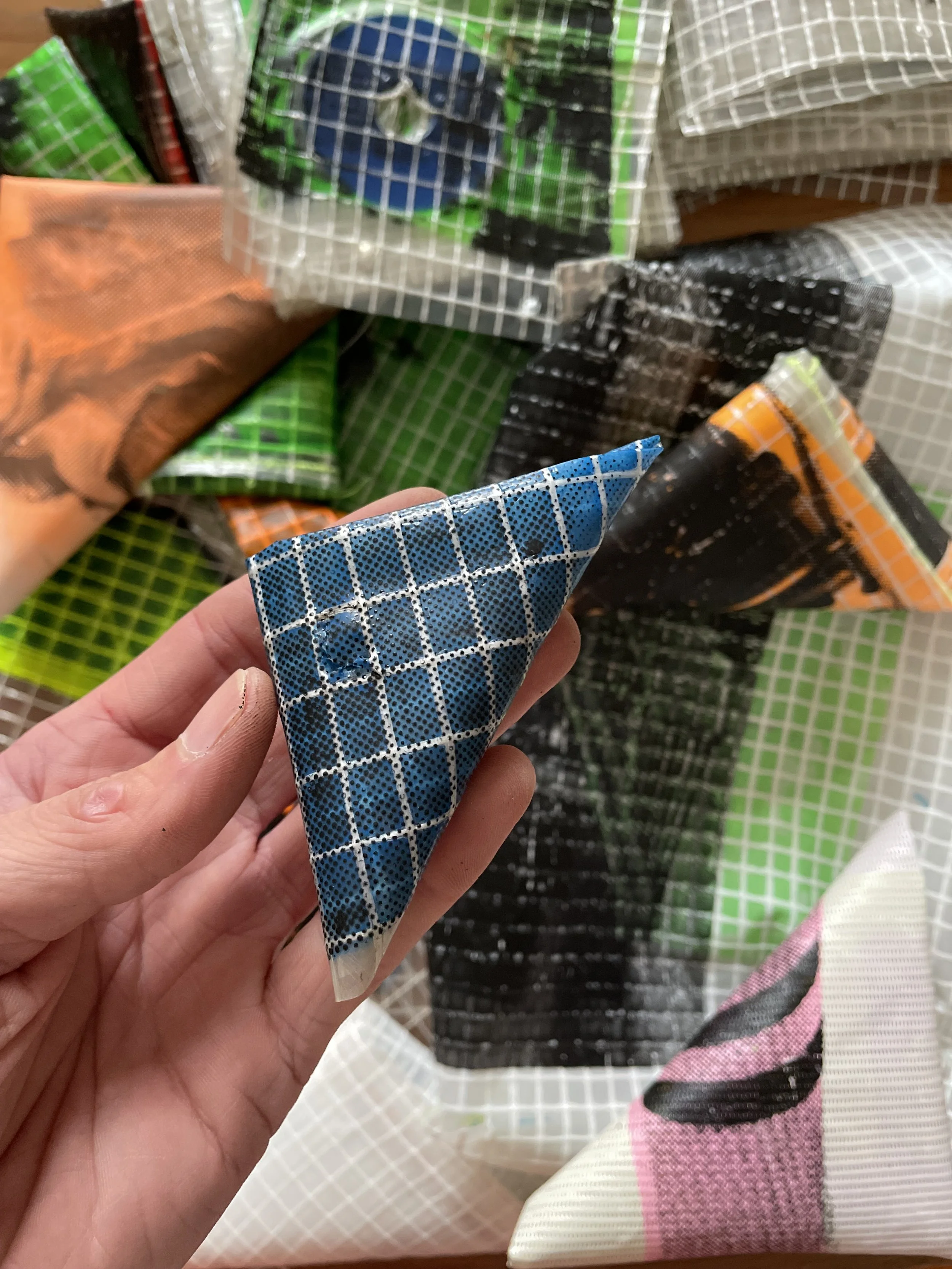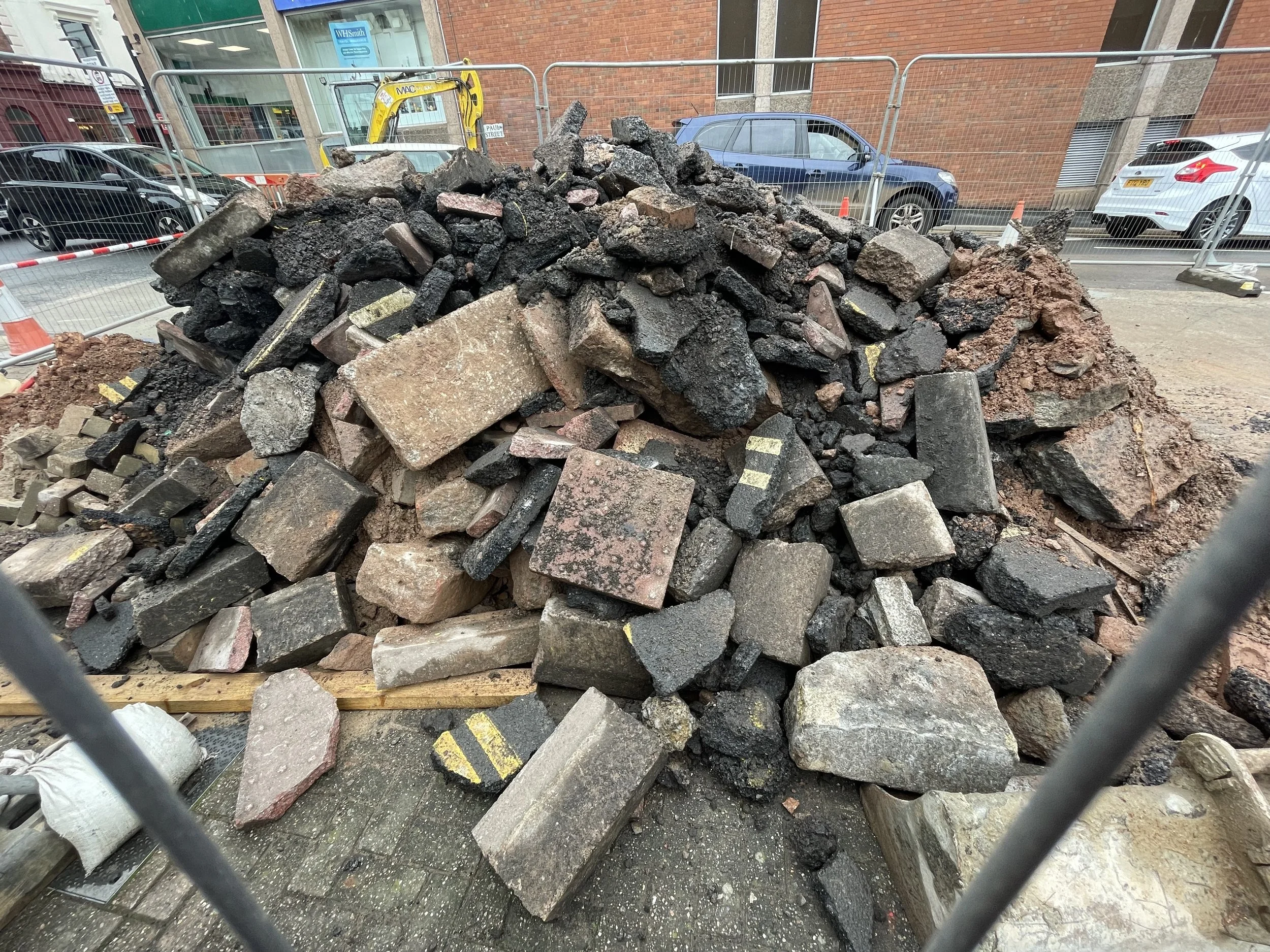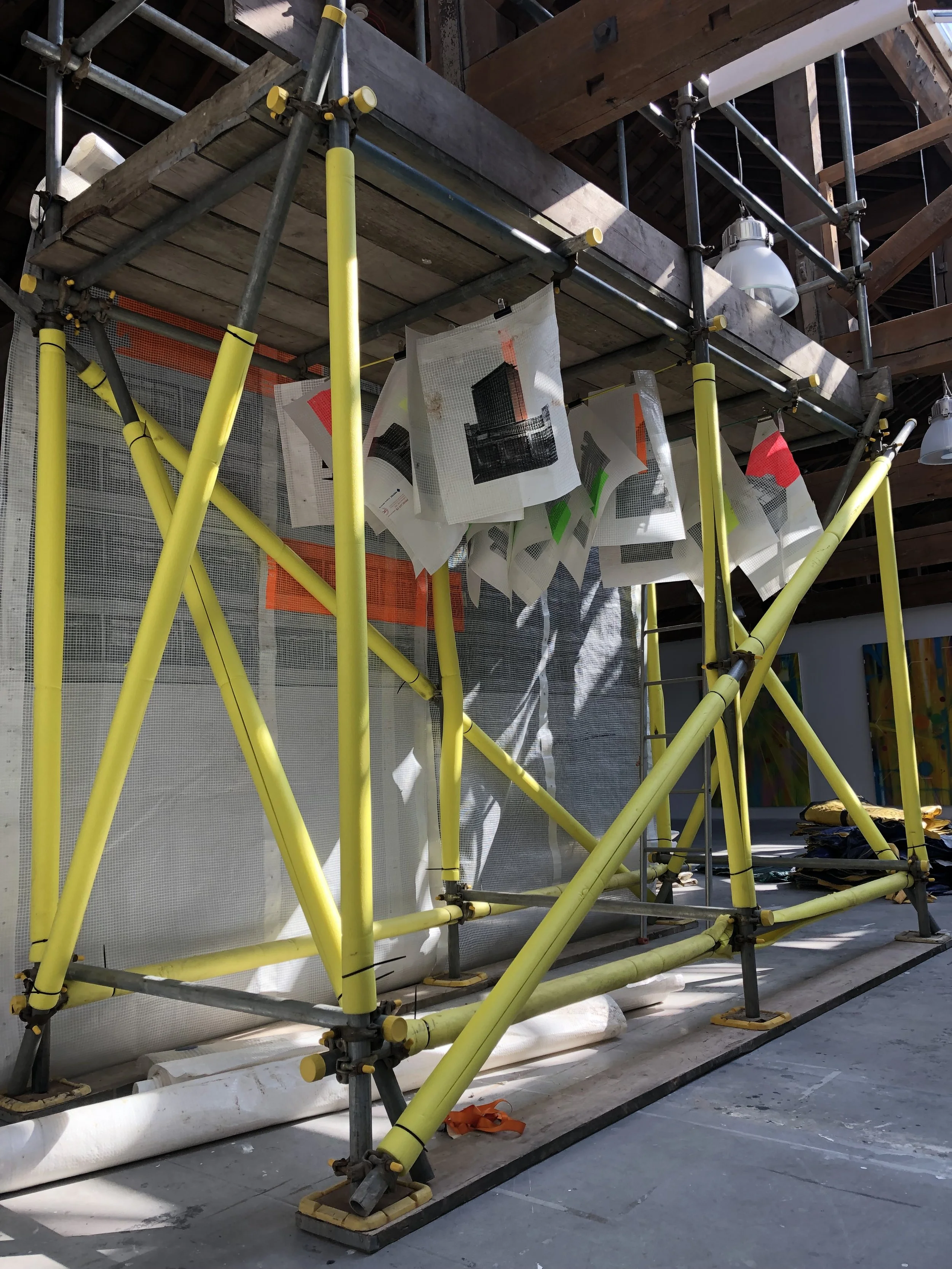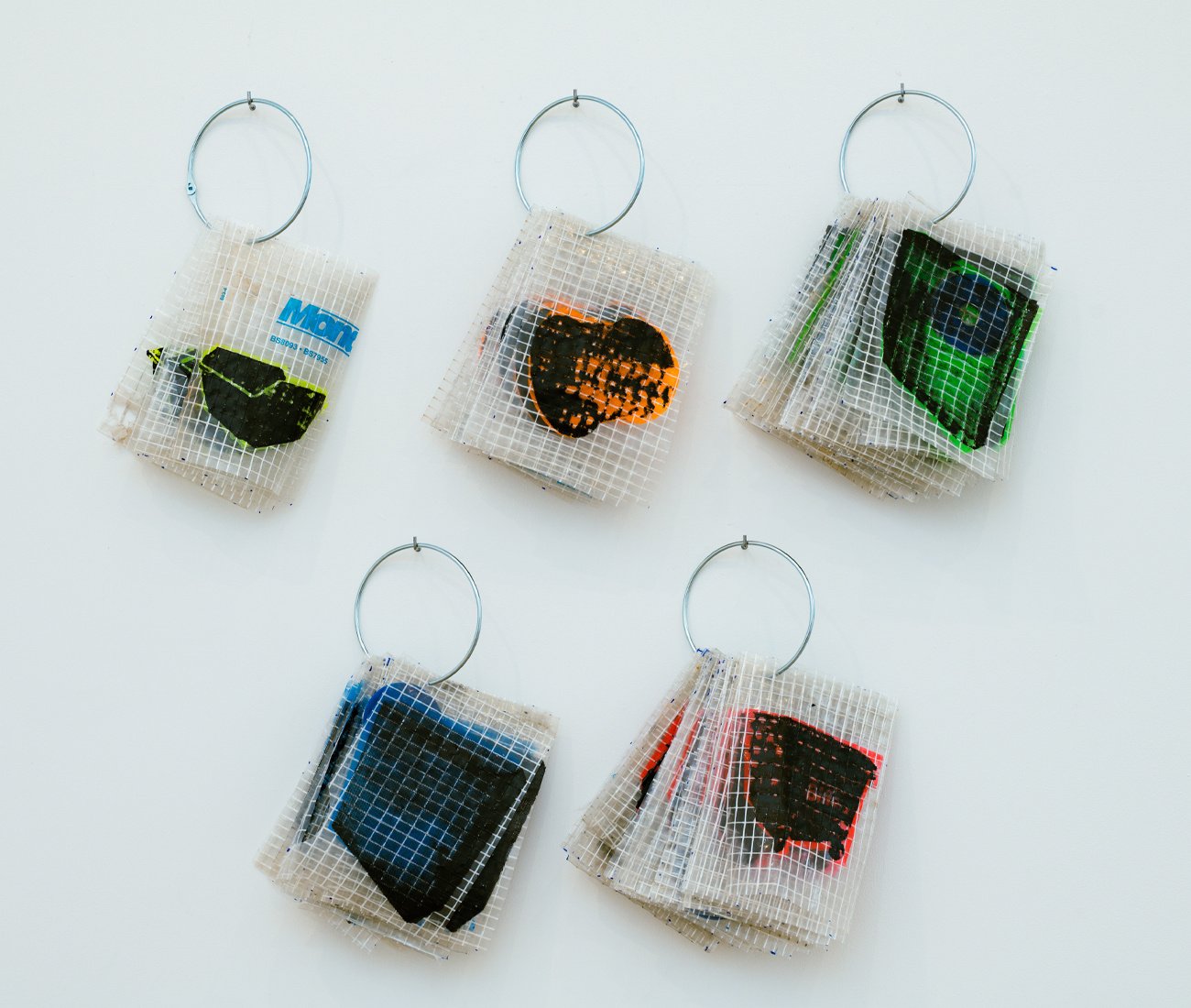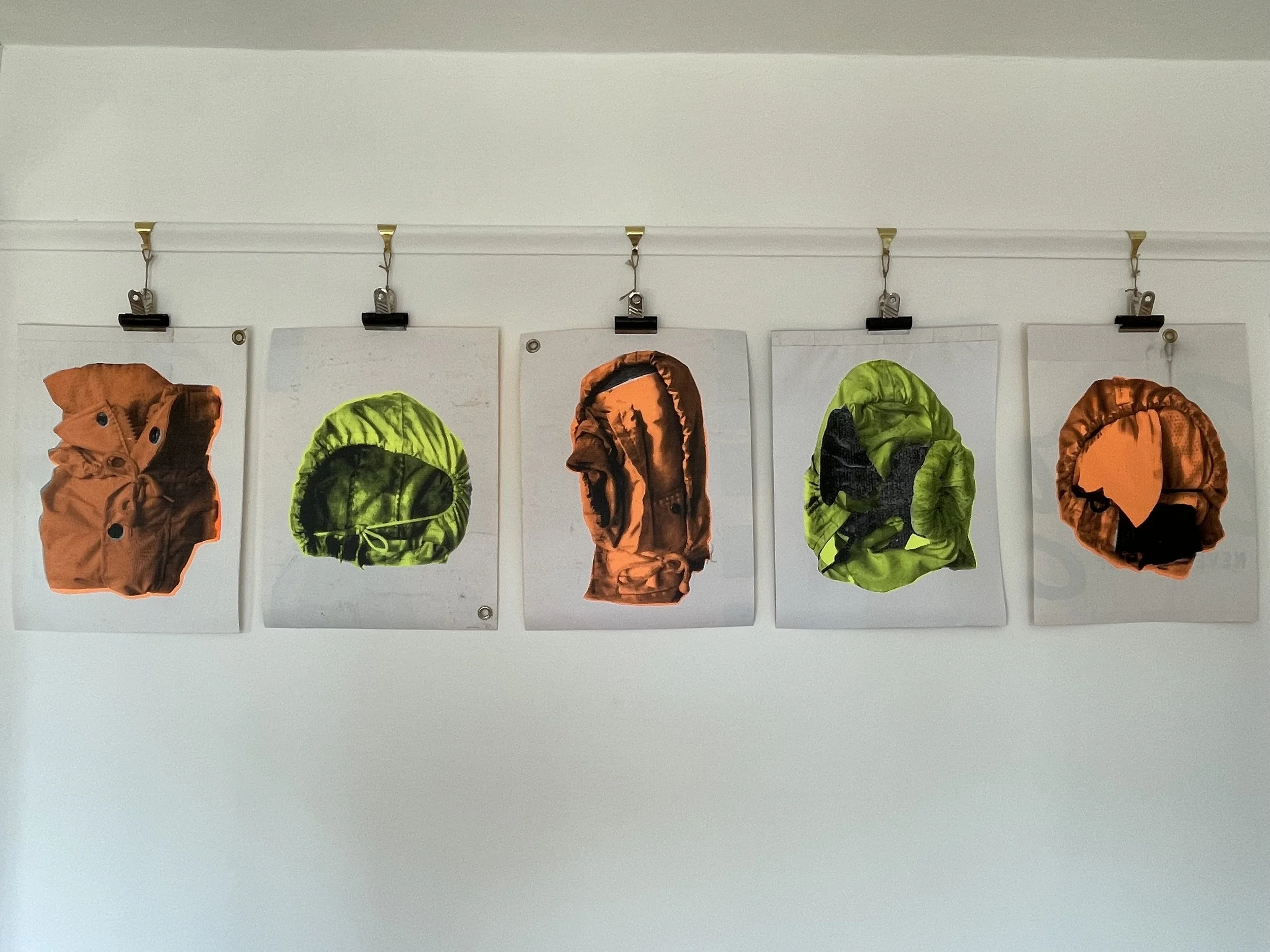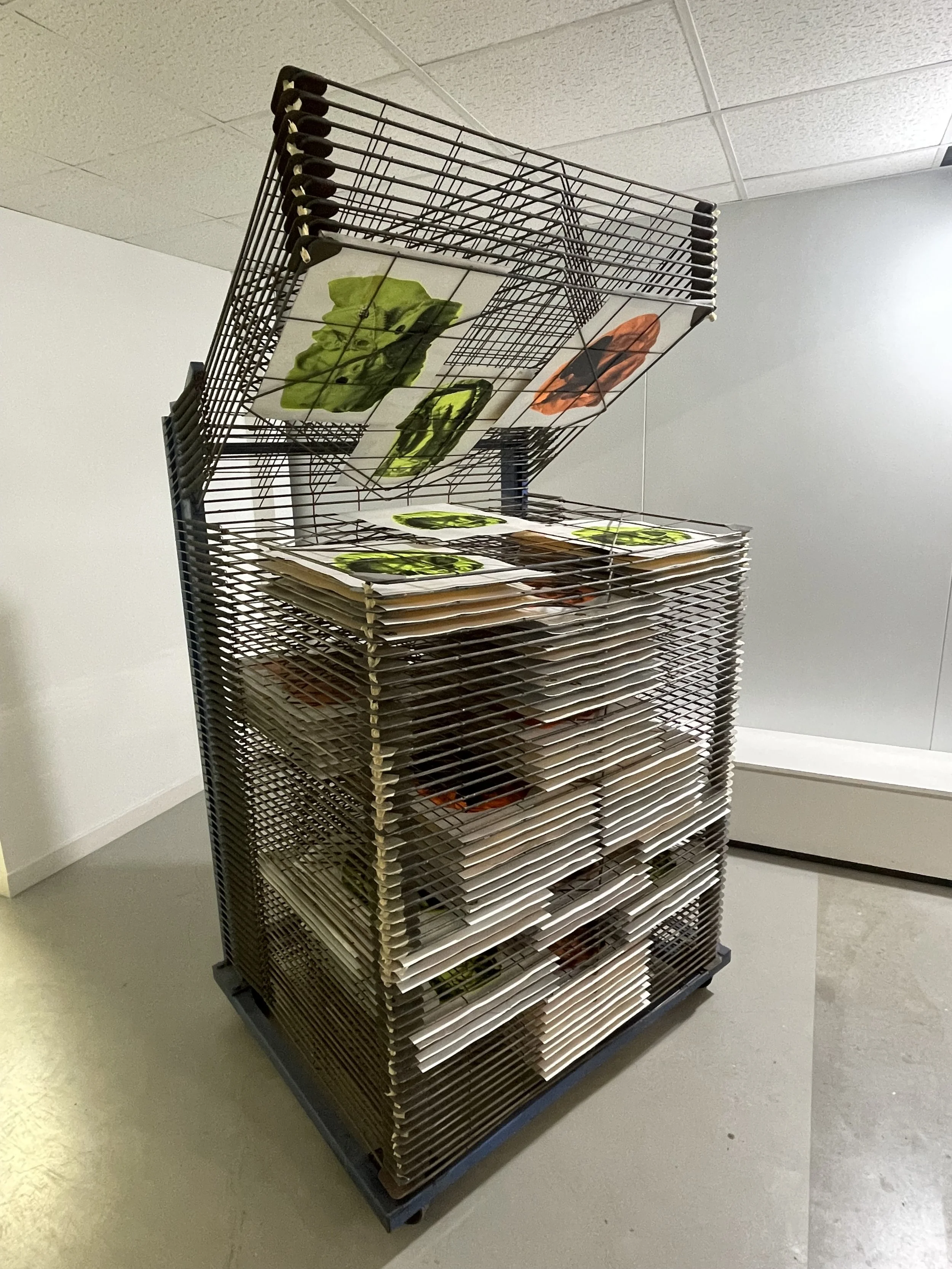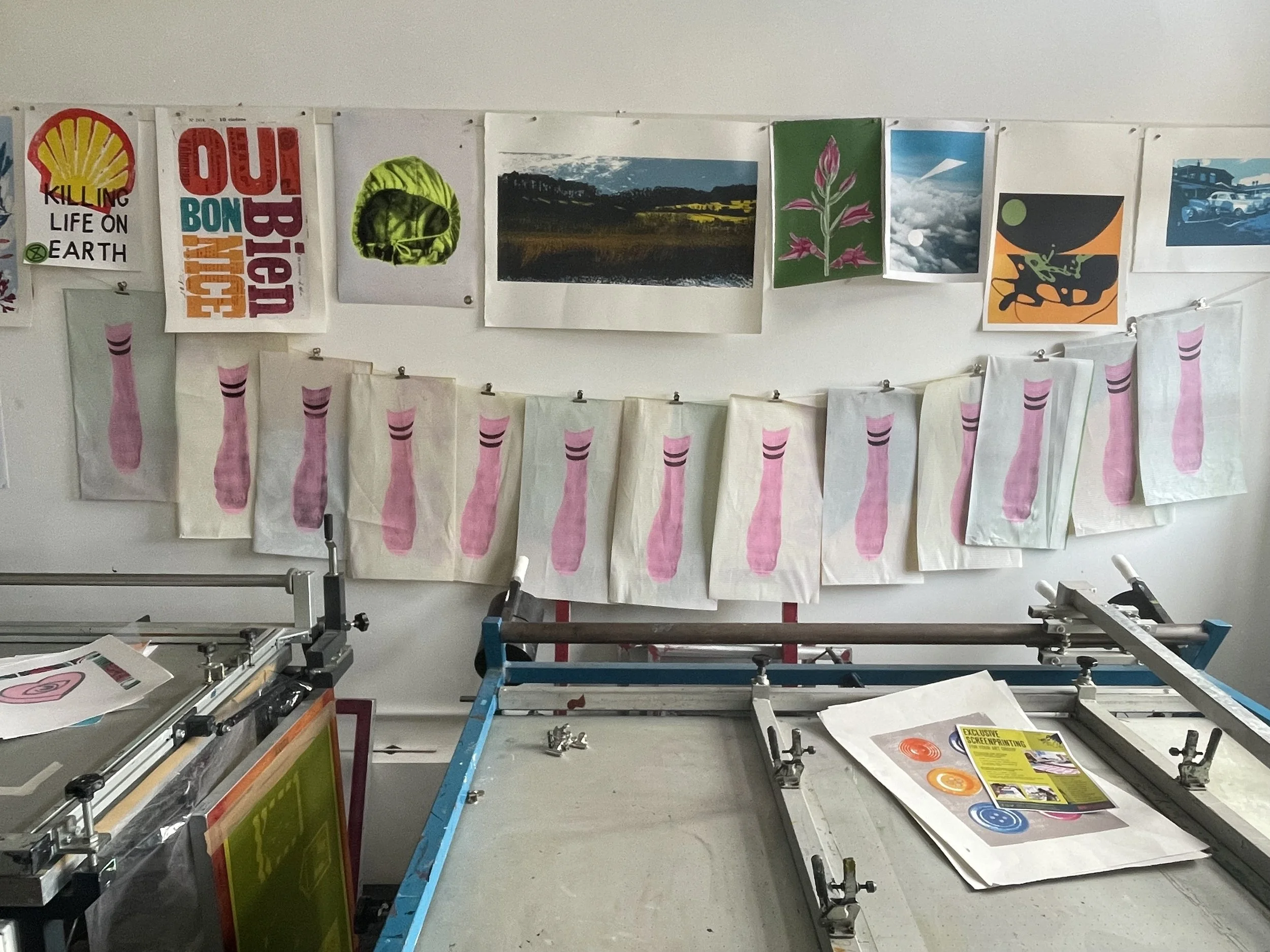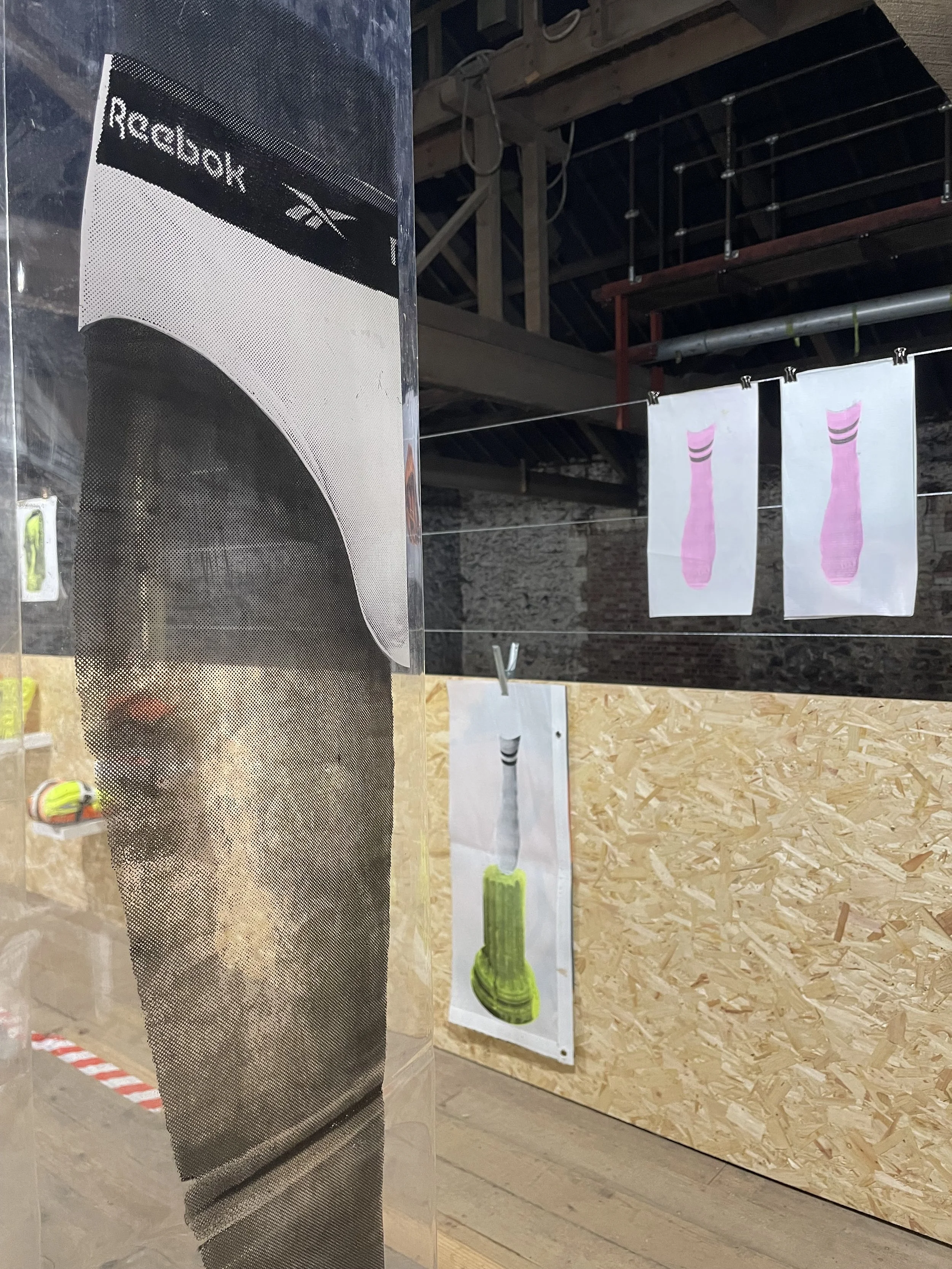Practice Rubble
In a playful critique of the consumption and disposal of construction materials, I have repurposed a series of prints on pre-used worksite plastic, which are folded into triangles and brought together to represent a kind of artist’s rubble. Addressing everyday environmental consumption and waste, I have collected every bag of crisps I have consumed since 2006, each carefully folded into a triangle and stored in a kilner jar. Serving as a reminder of my own part in the consumption and disposal of non-recyclable materials and a catalyst for exploring how as an artist I might archive work. By extension the folded prints take on the same values.
After being invited to show some work in the small window box gallery at the Exeter Phoenix I initially thought I’d make some new forms using plastic sheeting that I have been storing. I made a few maquettes based on the dimensions of a chunk of concrete, using a template and sewing a 3D shape. It was immediately clear that these little forms took more effort than they were worth and were overly complicated. They also started to pose other questions relating to the space they would take up. Initial proposals outlined making many of these forms in order to stuff the exhibition space full, but how they might be stored or disposed of after the exhibition became a question I didn’t have an answer for and lead to a rethink.
Following a conversation about the idea of making a voluminous work from scratch and ultimately moving away from doing that I thought back to an idea that I presented in March at a thought exchange. During a talk I proposed taking up less space with physical prints by folding one into a smaller form. Looking at recent inspiration for my practice and taking stock of all of the printed work I had made and subsequently am having to store, I found the idea. Rubble made from my own stored work.
The nature of my printing is to make multiples. Naturally this can produce a large volume of work that eventually needs to be stored. For an artists this can be problematic without a studio or storage solutions outside of the home. Art history is peppered with stories of lost paintings that later turn out to be hidden under other paintings because an artist has re-used canvases, possibly because storing so many paintings became problematic. Other stories tell of artworks being stored in unusual places such as carparks or hidden in walls. Museums and art galleries have masses of objects and art works that spend much of their time in storage. Artists make work and others collect it and more is made, and then stored and made and made and stored in a cycle that fills spaces.
As my practice has partly evolved around the issue of storage, many of my works are reworked from older pieces or added to, they are made to be modular so that they can intertwine with other pieces and pack down for domestic storage. With that, I revisited the many prints I have made over the years and began to fold them into compact triangles.
Four series of prints were selected to be folded for this work, Architectural prints on plastic sheeting from my Masters graduation show, over 150 prints from Correspondence01, over 50 prints from Embodied Labour and a handful of sock prints from a recent series. Different projects for different places that are ultimately tied together through process and material. The results of many hours work distilled into one small space. Perhaps one day all of my work will be rubble.
Folding the prints into neat triangles allows me to focus on certain details. Its possible to manipulate the folding to highlight a particular colour or texture of the plastic. It’s also a way of pinpointing the quality of the duotone prints, my style tends to blend a solid, bright colour with a dot printed overlay in black. Various sizes of folded prints were produced giving an over all feel of rubble with jumbled textures, colours and materials.
This work is on show at the Exeter Phoenix in Galley 333 until the end of August 2024.
